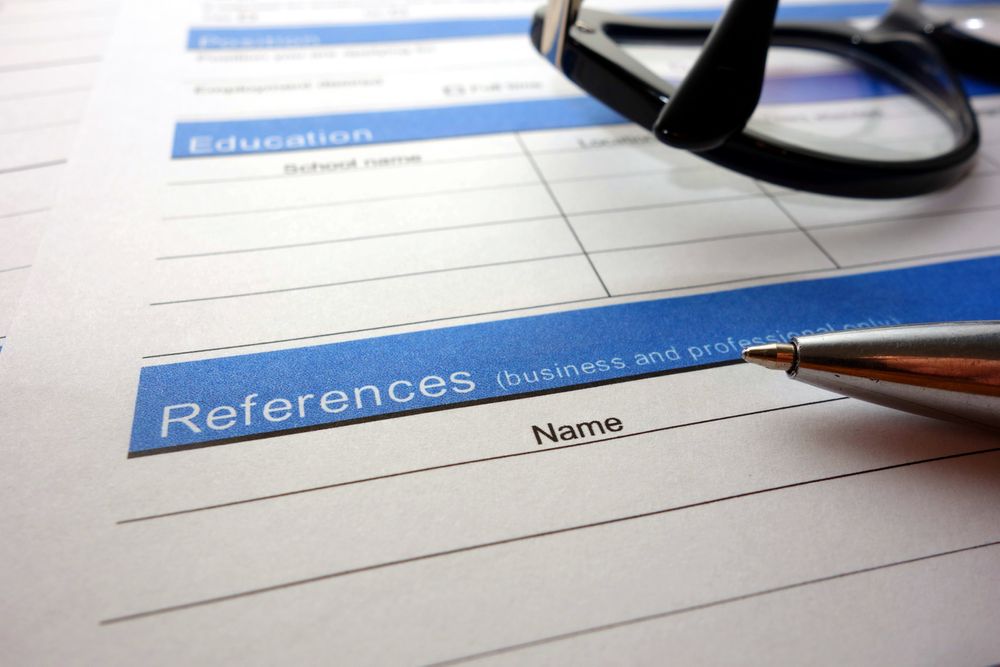
If you're in the market for a new job, having a list of references is essential. But not all references are the same, and there are key differences between personal and professional references. Find out everything you need to know about the two types and be one step closer to a new job.
Also referred to as a character reference, a personal reference is a person who knows you well and can vouch for your character. However, they have not seen you in the workplace and can't speak to your abilities as an employee. This is why most hiring managers don't request personal references and prefer the alternative.
Despite the fact that most employers ask for professional references, you should always be ready with some personal references. Recent college graduates might not have enough professional references to satisfy an employer's requirements, or people switching careers may want a personal reference to discuss their other skills. In either scenario, it's acceptable to replace a professional reference with a personal one.
A professional reference is someone who works with you in one capacity or another. As a general rule, they should have worked with you for a minimum of six months within the last seven years. You can use a supervisor, department head, or co-worker. In some circumstances, your reference could be a client.
Your professional reference is someone who can discuss your work ethics, goals, and habits. After speaking with the professional reference, a hiring manager can better understand your assets and how you can contribute to the company.
Employers ask for references at different points of the hiring process. While most request them after an interview, some managers require them before interviews. If the reference request is in the job listing, read it carefully. Does it specify the type of reference?
During an interview, listen carefully to the interviewer's request. Do they ask for a character reference or a professional reference? If they don't say, you can directly ask them which type of references they want. As someone new to the job market, you may be able to explain that you don't have enough professional references, but you're happy to provide a few character references to make up for that.
If you're not sure which type of reference to use, there are a few things you can do to make the right decision. First, consider the quality of your professional references. Do they all have something positive to say about you? If you have any concerns about the person speaking ill of you or your ability, you should find a different reference. You need a reference who can offer concrete and job-specific examples of your abilities.
Second, consider who you might use for your personal references. Would they be able to say anything that speaks to your work habits? If not, the only reason to use them is that you don't have professional references. It's worth noting that a positive personal reference is better than a bad professional one, so keep that in mind.
Finally, consider what the employer wants. If explicitly asked for professional references, satisfy that requirement. Only include a personal reference as a last resort, and tell the hiring manager why you made the substitution.
In any case, use someone who has a great relationship with you. For instance, you might have a colleague who regularly works with you on large projects. Or, you could have a college professor who still offers you career advice.
If you keep staring at a blank paper with "References" types at the top, it's time to focus. It would help if you had your references ready for a prospective employer because you never know when you'll have an interview. When you scramble to find references at the last minute, you risk picking a bad advocate.
To start your search, think of someone you work with or used to work with who holds you in high esteem. It doesn't have to be a high-level manager - anyone who has a professional relationship with you will suffice. Start by making a list of every potential professional reference you can think of, and switch to personal references when you exhaust your professional connections.
This involves thinking back to people who have had an impact on your life. Was there a teacher you maintained a close relationship with? Or a friend from college who you speak to about work? At times, you need to dig into your history to find a reliable reference.
When you have a list of potential references, you should reach out to each one and ask them for permission. Although you can do this over email, it's best to make the request in-person. If you haven't spoken in several months, take time to catch up before asking them to be your reference.
If you want your references to improve your chance of a job offer, you should prepare them to speak with the hiring manager. Discuss the job description and explain what you hope to gain from a job offer. Additionally, make your reference aware of what makes you an ideal candidate for the position.
It's also helpful to send over a copy of your resume. If the hiring manager asks questions about your employment history, your reference can refresh their memory and offer up concrete dates.
Before submitting your reference list, ensure the contact information is correct. Are the email address and phone number accurate? Do you have the proper job title? Including inaccurate information on your reference list could keep you from receiving a job offer.
Whether or not you're looking for a job, you might want to update your list of references frequently. Reach out to your references every few months to keep them in your network. If you find new or better references, add them to your list.
Lorem Ipsum is simply dummy text of the printing and typesetting industry. Lorem Ipsum has been.
